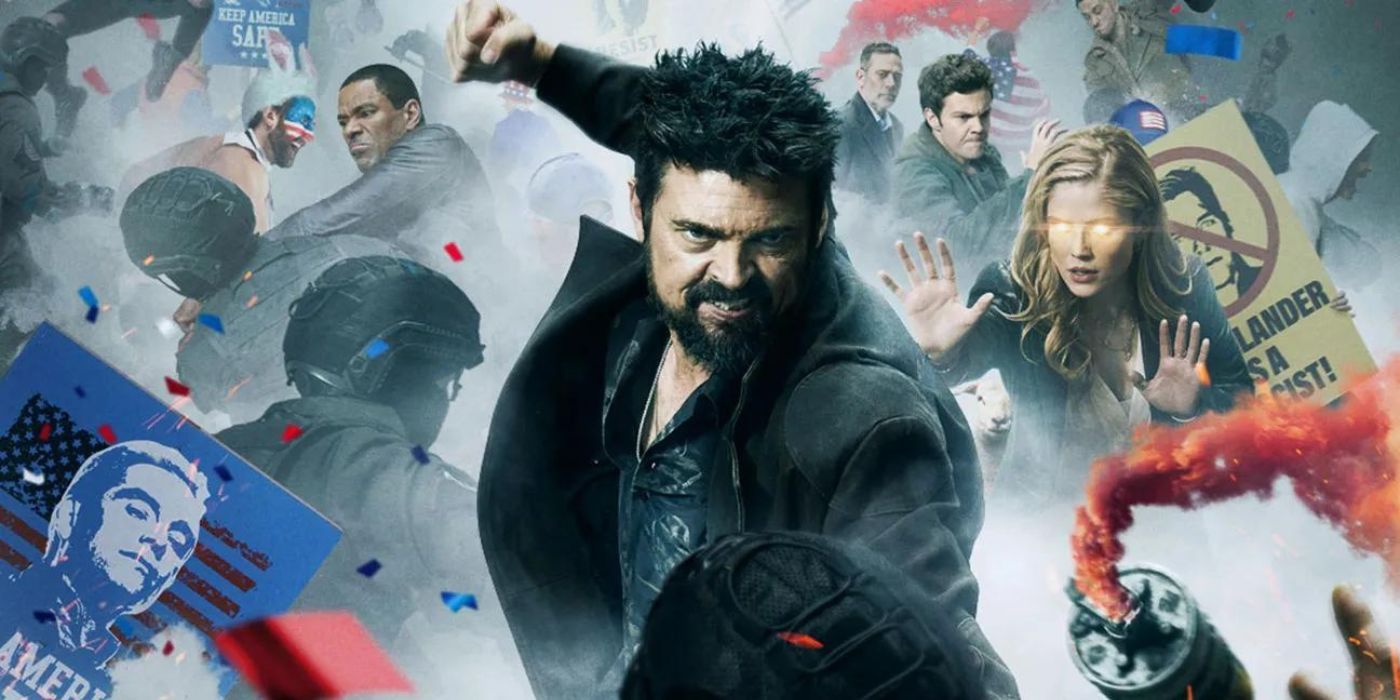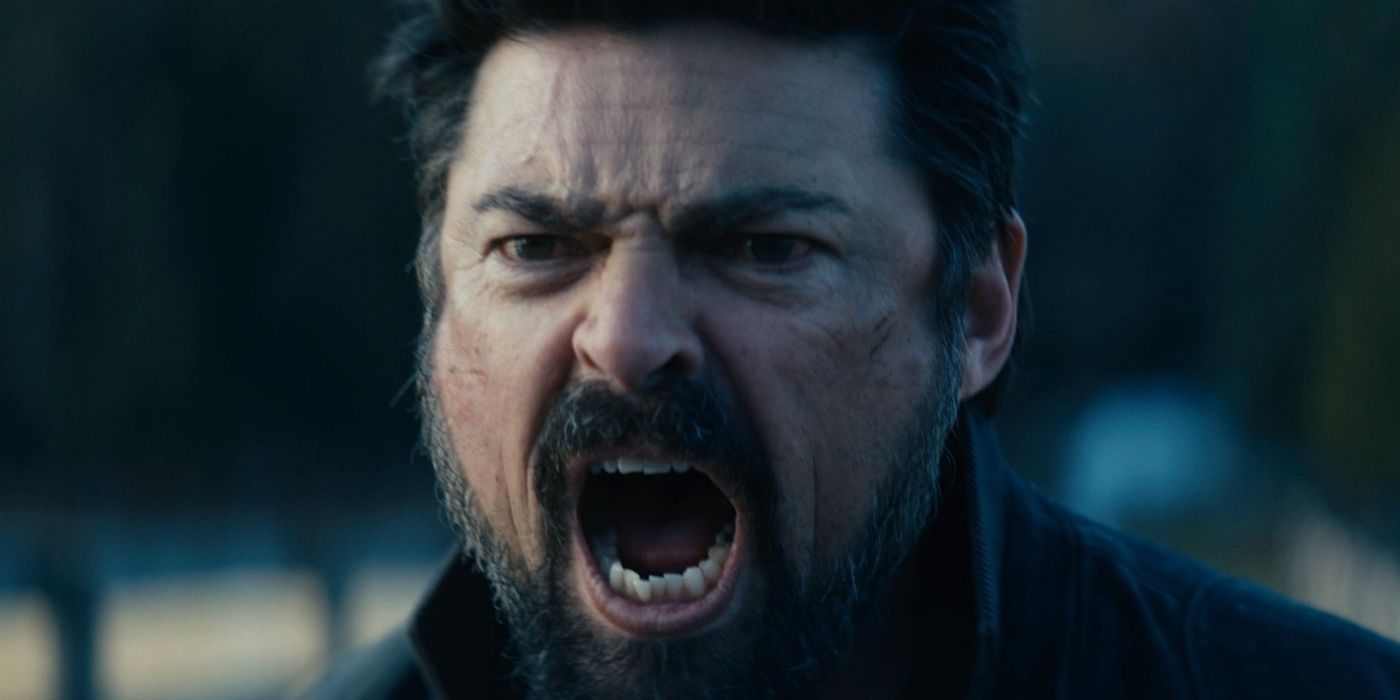
When it comes to gory TV shows, few are as bloody as Amazon Prime Video’s The Boys. Created by Eric Kripke, the program has astounded audiences for years; this gritty approach to the superhero genre shows what a terrifying, capitalist nightmare a world with superpowers would actually be, exploring this concept through grotesquely creative fight scenes. These moments of inventive violence defined most of the show’s early popularity and, in their own jaw-dropping ways, helped deepen the plot with each subsequent installment.
The narrative no longer has to rely so heavily on physical fights to portray how utterly human the world’s true terrors are, becoming a great fusion of bombastic gore and thoughtful storytelling — though one thing is holding it back. Or rather, one character. The huge emphasis on this protagonist, who once perfectly embodied the show’s main themes, has become a hindrance to the multi-faceted program it has become. So much of The Boys’ fame is owed to this great character, but if the show wants to continue in the jaw-dropping, thought-provoking manner it has been, then it may just need to cut Billy Butcher (Karl Urban) loose.
Billy Butcher Embodied What ‘The Boys’ Is All About
The Boys has always been exceptional at using violence to drive its plot. Set in a world where superheroes exist, the series focuses on the titular group, The Boys, brutal anti-heroes who bring terrifying justice to the many Supes who wreak havoc on their world. All the members of this vigilante team have undergone tremendous character journeys; from Kimiko’s (Karen Fukuhara) path to emotional recovery after surviving being a child soldier to Hughie’s (Jack Quaid) turn from weak-willed bystander into a capable strategist, the show offers numerous nuanced characters who add grounded growth to this often wild plot. It uses these protagonists to tell its story, and when it first started, Butcher was the most important of them all.
Butcher began the series as The Boys’ leader, a ruthless former soldier stopping Supes who used their privilege to commit atrocities — though he always had one main target in mind: Homelander (Antony Starr). The “hero” assaulted Butcher’s wife Becca (Shantel VanSanten) before the series started and caused her disappearance, this loss leading Butcher to his dark fight for justice. While Hughie has acted as the audience stand-in, it was Butcher who embodied so much of the series’ core themes; his experience with the worst parts of this world showcased how things like capitalism and greed ruin any chance at real superheroes existing in modern society.
Even more, his violence showed how cutthroat you’d have to be in this fight against evil, his cruelty — while hard to watch — often extremely necessary against the bloodthirsty Supes our main vigilante team are trying to stop. His role as one of the show’s primary protagonists helped set this series on the ingenious path it’s still following in Season 4, a great arc that, sadly, Butcher just hasn’t been able to keep up with.
‘The Boys’ Has Moved Past What Butcher (and Homelander) Has To Offer
For all of his bluster, The Boys has revealed the many terrible traumas that turned Billy Butcher into the merciless figure he is today. Audiences have gotten glimpses beyond his vicious exterior, learning about his past trauma with an abusive parent and just how deeply Becca’s disappearance impacted him. It’s been refreshing to see this side of the character; while his expertise with violence was always exhilarating to watch, his constant “edginess” is too reminiscent of the much simpler approach of The Boys’ comic books (which the adaptation is credited as exceeding greatly), stunting not only his own characterization but also the thoughtful plot developments happening throughout the series.
The scenes that offered a look past his usual callousness were extremely welcome, though they didn’t really change him all that much. An essential aspect of story development is the growth of characters, with each one’s unique growth reflecting the story’s progression overall. But despite these emotional scenes, Butcher has always fallen back into acting like the bloodthirsty Supe hunter he started the show as, undercutting previous attempts to develop his character and disrupting the flow of a show that no longer needs such a violent persona to tell its story.
In his defense, Butcher isn’t the only character not to lose his ultraviolent ways. The main antagonist, Homelander, has always been a cruel narcissist despite undergoing many massive changes – though in his case, it’s his lack of growth that helps push the narrative forward. Homelander’s need for validation and his terrifying temper speaks to the dangerous, irresponsible person he will always be, emphasizing the series’ central question of what you must do when fighting against destructive people with absolutely no chance of redemption.
Billy Butcher often served as his brutal foil, but while both men are capable of terrible actions, Butcher’s ultimately helps the greater good — usually. Because for all he’s helped get done, his constant fall back into the domineering and selfish personality he started the series with shows that he’s as incapable of genuine growth as the monster he’s fighting against. This would be fine if the plot didn’t so greatly hinge on him, but with the series continuing to feature him as one of its primary protagonists, it undercuts the multi-faceted narrative that’s been building for the past five years. Butcher’s sadistic tendencies are essential to the character, but his inability to grow — while serving as one of the program’s main storytellers — makes it more and more difficult for this series to move past the simpler, ridiculously “edgy” story it started out as.
Is There Still Space For Billy Butcher?

Even if the show isn’t as focused on violence as it once was, Billy Butcher is still essential to so much of what makes The Boys great. Beyond being one of the most-liked characters, his violence stresses that in a world like this one, you have to be willing to do anything, no matter how despicable, to bring peace. He was essential to tell so much of this story, so his characterization should reflect that.
Despite being so important to a show renowned for its thoughtful dialogue and complex storylines, Butcher’s inability to move past his original brutishness compromises so much of the effort put into fleshing this narrative out. It stunts not only his own development but what this show has worked so hard to become: a compelling story recognizing that, while super-powered bloodshed will always be scary, it’s human greed that will destroy the world as we know it. Butcher’s lack of growth means he no longer helps push this intriguing concept forward, and while he’s always good for a great scene of carnage, his inability to keep up with this constantly evolving plot makes it clear that he no longer fits into the story The Boys is trying to tell.
The Boys is available to stream on Amazon Prime in the U.S.


